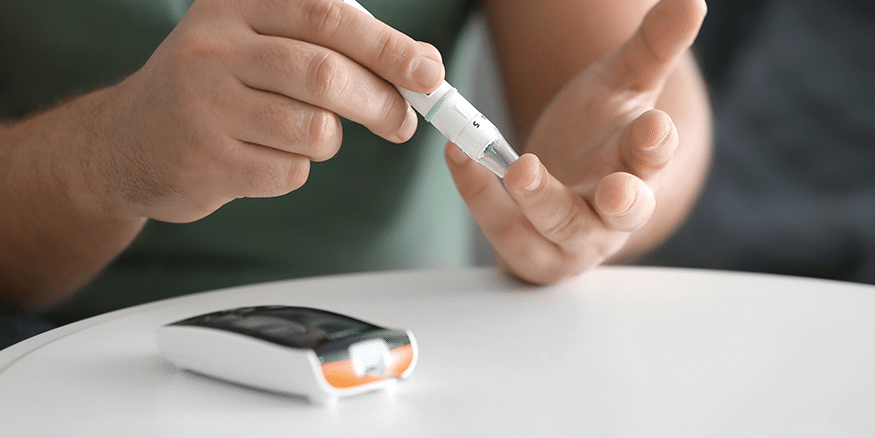The onset of the pandemic has caused disruption in addressing funded public health concerns as health workers and systems research the COVID-19 response in each country. India's healthcare has changed a lot in the past year and a half. The second battle of the epidemic began to see a decrease in coronavirus. Several such reports emerged that increased the weakness and made the crisis even more serious. One of them is the impact of NCD on the ongoing COVID-19 crisis.
People living with any type of NCD have been most affected during this health crisis. While the number of infections increased for a variety of reasons, the existence of underlying diseases such as diabetes, heart disease, and kidney diseases increased the risk of poor outcomes. A recent Lancet study said the mortality rate in COVID-19 patients with at least one existing health condition such as diabetes or high blood pressure was 5.7%, compared to 0.7% in other healthy people.
Diabetes, hypertension, and digestive disease identified as the top three NCDs
One report identified diabetes, hypertension, and digestive disease as the top three NCDs, followed by respiratory disease, neurological disorders, heart disease/cardiovascular disease (CVD), kidney disorders, and cancer.
India, known as the diabetes capital of the world, has one in six people living with diabetes globally. There are an estimated 77 million diabetics in the country. The rapid increase in the number of diabetics is mainly attributed to dietary patterns, sedentary lifestyle, living conditions including an increase in blood pressure and body weight. Diabetes occurs when the accumulation of activated innate immune cells in metabolic tissues leads to the release of inflammatory mediators, particularly interleukin-1β and tumor necrosis factor-alpha, which promote systemic insulin resistance and β-cell damage.
Holistic management is need of the hour to avoid complications
Over the past 18 months, diabetes has been associated with more complications and worse outcomes in patients diagnosed with COVID-19. The need for oxygen support and ICU care is higher for diabetic COVID-19 patients than for those without oxygen. Thus, it becomes important to ensure access to health care solutions on a regular and timely basis. Holistic management of diabetes during the pandemic includes continuing knowledge sharing to enable patient self-care and targeting improved glucose control through meal planning, improved cardiorespiratory fitness, and physical activity.
Treatment for Corona Impacted Diabetes
Consistent pharmacotherapy is essential to reverse diabetic complications and to achieve the required glycemic targets. Over the past few months, various telehealth and digital health solutions have paved the way for convenient interactions between doctors and patients, thus ensuring efficient delivery of critical medical care remotely. Remote solutions like live chat, audio and video-enabled consultations, remote scheduling of appointments, etc. are all helping needy people to get access to quality healthcare.

 Corona has many complications. Not to forget, the treatment and steroids for corona are causing havoc like diabetes which is the long-term affection. If you have been affected by corona, check your sugar levels post-pandemic
Corona has many complications. Not to forget, the treatment and steroids for corona are causing havoc like diabetes which is the long-term affection. If you have been affected by corona, check your sugar levels post-pandemic









.jpeg)







.jpeg)

.jpg)










